News
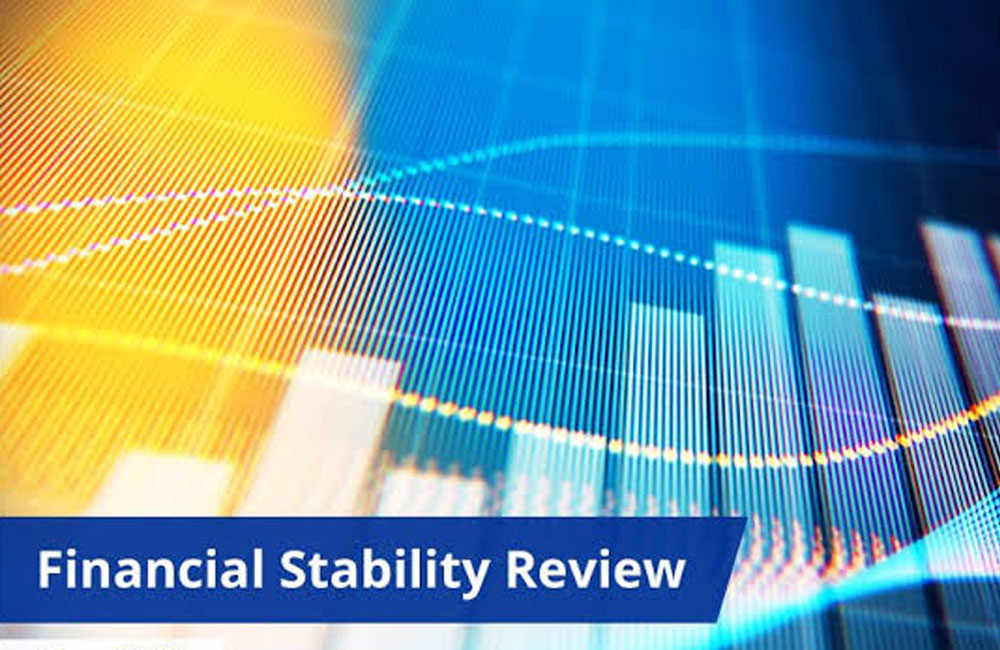
Rising Margin Loans Pose New Risk to Sri Lanka’s Financial Stability
Margin loans issued by Sri Lanka’s banking sector have surged by nearly 25 percent—from Rs. 48 billion in January to Rs. 60 billion by August 2025 raising fresh concerns about growing speculative exposure in the financial system. The Central Bank’s latest Financial Stability Review confirms this increase, even as authorities attempt to balance post-crisis recovery with financial discipline.
According to B.H.P.K. Thilakaweera, Director of the Central Bank’s Macroprudential Surveillance Department, the sharp rise in margin lending reflects both investor optimism and increasing credit appetite amid a rebounding economy. Although Central Bank Governor Dr. Nandalal Weerasinghe downplayed the risk stating that margin credit remains a small share of total banking sector lending—analysts warn that the pace of growth could signal emerging vulnerabilities.
Margin loans, which allow investors to borrow against their equity portfolios to buy more shares, have historically amplified market cycles in frontier economies. With the Colombo Stock Exchange (CSE) rallying on the back of improved earnings, falling inflation, and restored investor confidence, the risk of over-leverage has increased. The Central Bank report notes that stock market volatility, measured by the 20-day moving standard deviation, has already exceeded 2024 averages, peaking in January 2025 the highest level since April 2022.
Such volatility, coupled with a sharp increase in leveraged positions, could expose both investors and banks to severe losses if markets correct sharply. The Review also highlights elevated geopolitical tensions ranging from global trade disputes to armed conflicts that have further intensified risk levels.
Economists caution that a sustained rise in margin lending without commensurate oversight could threaten broader financial stability. While corporate earnings and improved liquidity have driven a bullish sentiment, the same optimism may lead to speculative excesses if not closely monitored.
For depositors, the concern lies in potential contagion. If stock market corrections trigger defaults on margin loans, banks could face balance sheet pressures, particularly smaller ones with limited capital buffers. This, in turn, may weaken depositor confidence especially in a country with a history of monetary instability and periodic financial shocks.
The Central Bank faces a delicate policy challenge: supporting capital market growth while preventing excessive risk-taking. Experts suggest tightening margin lending guidelines, imposing higher risk weights on equity-backed loans, and enhancing transparency on exposure levels across financial institutions.
Sri Lanka’s experience underscores the fine line between economic recovery and speculative overheating. As the nation rebuilds confidence after years of instability, maintaining macroprudential discipline will be key to avoiding another cycle of financial distress.

Body found near Adani Terminal at Colombo Port
The Colombo Port Police have launched an investigation after a body was discovered in the sea near the jetty of the Adani Terminal at Colombo Port, following a tip-off.
The identity of the deceased, believed to be a man about 5 feet tall with slightly grown hair, has not yet been confirmed.
Police said the body was in a deteriorated condition, making identification difficult, and was wearing blue denim trousers.
Following a Magistrate’s inquest, the body has been deposited at the Colombo National Hospital morgue.
(Source - dailymirror)

Auditor General Exposes NSB’s Irregular $9 Million Maldives Loan
In a damning revelation, the Auditor General has found fault with the National Savings Bank (NSB) for extending a US$ 9 million loan to a private tourism company in the Maldives, a move that violates the bank’s legal mandate.
The loan currently classified as non-performing, was issued without a proper risk assessment and remains unpaid, raising serious concerns about regulatory oversight and governance at the state-owned savings bank.
National Savings Bank (NSB) has been embroiled in an irregular lending of US$ 9 million to a private firm RPI Private Limited on in Maldives, the Auditor General’s latest report revealed.
The borrower had not paid any capital repayment or any arrears interest of $ 4.18 million which was outstanding as at 31 May 2024.
The loan was granted to this foreign company which is operating under tourism industry for the construction of Villas and this does not cover under the scope specified in the NSB Act, the national audit report revealed.
The provision of credit for construction work to a private company engaged in the tourism industry in a foreign country was an area not covered by the National Savings Bank Act and evidence was not revealed to the audit that a comprehensive credit assessment or risk assessment had been carried out before the loan was granted.
The initial grace period of one year given by the Bank for repayment of capital after disbursement of the loan amount had been extended till 2022 from time to time.
Despite being a foreign company not covered by the Circular No. 5 of 2020 issued by the Central Bank, the borrower company had not made any capital repayments until 31 December 2023, even though the Bank had granted loan concessions under the said Circular.
This loan amount was classified as a non-performing loan amount at the end of the year and any field inspection has not yet been carried out by an independent party with related to technical skills and competence, the audit report pointed out.
A sum of Rs 3,800 million, out of total loans and advances, had been foreign loans and the total value had been included a US$ 9 million loan given to this private company in the Maldives in the year 2018 and the arrears of interest calculated on it as at 31 December 2023.
The NSB asset base recorded a marginal increase to Rs. 1,710 billion as at end October 2024 from Rs. 1,687 billion as at end 2023. The deposit base of the bank increased by 2.2 percent
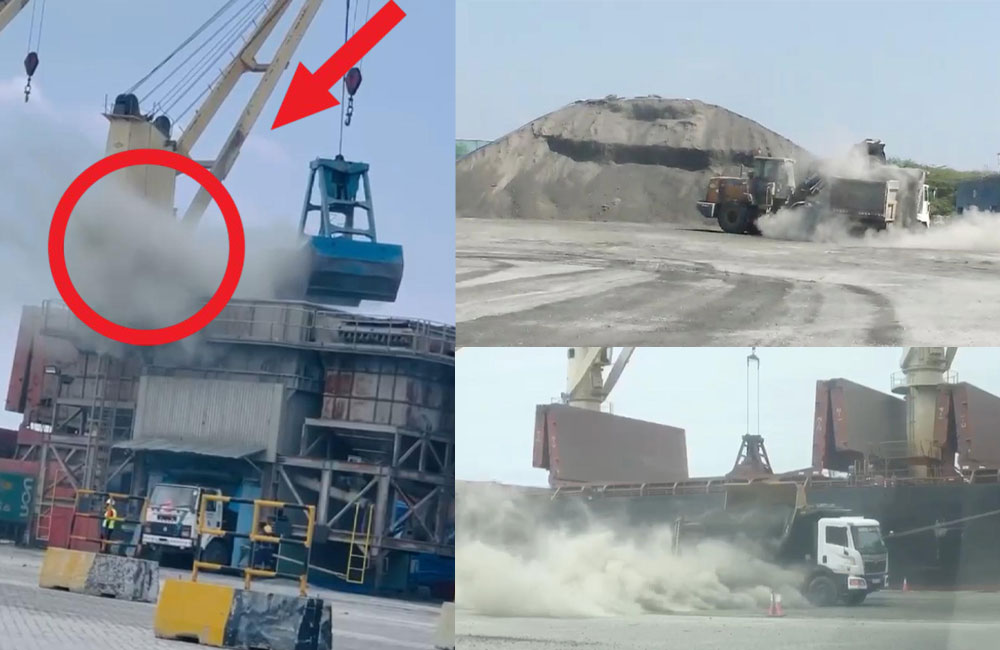
Environmental pollution, risk of cancer feared due to cement raw material transport
Environmental pollution and health risks of serious nature are feared during the loading and unloading process of raw materials for cement production.
Clinkers, gypsum and slag emit dust particles harmful to the environment and causing cancer at Hambantota port and at the factories, area residents say.
Some of the companies use covered conveyor belts to transport the material, while others do their unloading in open ground.
Transport of the material from the port to a factory in Galle is being done in open trucks.
Experts advise the proper use of conveyer belts to avoid this situation.


Vehicle Loan Surge Puts Sri Lankan Financial Institutions at Risk
Sri Lanka’s financial institutions are witnessing a sharp rise in vehicle-backed loans in 2025, igniting fresh concern among analysts and regulators over growing credit exposure and potential threats to financial stability. The surge driven by renewed consumer demand, relaxed import restrictions, and aggressive lending campaigns has made vehicle loans one of the fastest-growing segments of the post-crisis credit market.
According to data from the Central Bank and industry sources, vehicle loans have expanded by over 30% this year alone. While this growth has temporarily boosted the automotive and leasing sectors, it also exposes banks and finance companies to heightened credit and liquidity risks. Experts warn that unless carefully managed, this trend could erode asset quality and depositors’ confidence echoing the early signs of previous financial imbalances.
Vehicle loans are typically consumption-based and depend heavily on borrowers’ income stability. Many of these borrowers work in the informal or gig economy, where earnings fluctuate. Although interest rates have eased, repayment capacity remains fragile. A sudden increase in rates or a slowdown in household income growth could quickly trigger defaults, especially as vehicle collateral depreciates far more rapidly than real estate or equity assets.
Analysts caution that the sector is showing early symptoms of credit overheating. During the 2018–2019 credit expansion, vehicle loans contributed significantly to non-performing loans (NPLs) when consumer spending cooled. The Central Bank’s Financial Stability Review has already identified asset-backed lending particularly in vehicles as an area requiring closer scrutiny and stricter prudential standards.
For depositors, the implications are indirect but critical. If financial institutions face rising defaults, pressure on capital buffers and liquidity could spread to the broader banking network, undermining depositor trust. This concern is particularly relevant for smaller finance and leasing companies that rely heavily on short-term deposits to fund their lending portfolios.
Some analysts also question whether certain lenders are overstating asset valuations or underestimating borrower risk to achieve lending targets. Such practices could distort financial statements and conceal underlying vulnerabilities.
To avert potential instability, experts urge the Central Bank of Sri Lanka to tighten loan-to-value (LTV) ratios, enforce enhanced risk-weighting on vehicle-backed assets, and conduct targeted stress tests on vehicle loan portfolios. Strengthening credit assessment frameworks and ensuring transparent reporting of sector-specific NPLs are seen as crucial steps to prevent systemic exposure.
As Sri Lanka’s economy stabilizes after years of turbulence, the Central Bank faces the challenge of balancing credit growth with prudence. Without swift and coordinated regulatory action, the ongoing boom in vehicle loans could turn into the next stress point for the country’s financial institutions, threatening both profitability and public confidence.
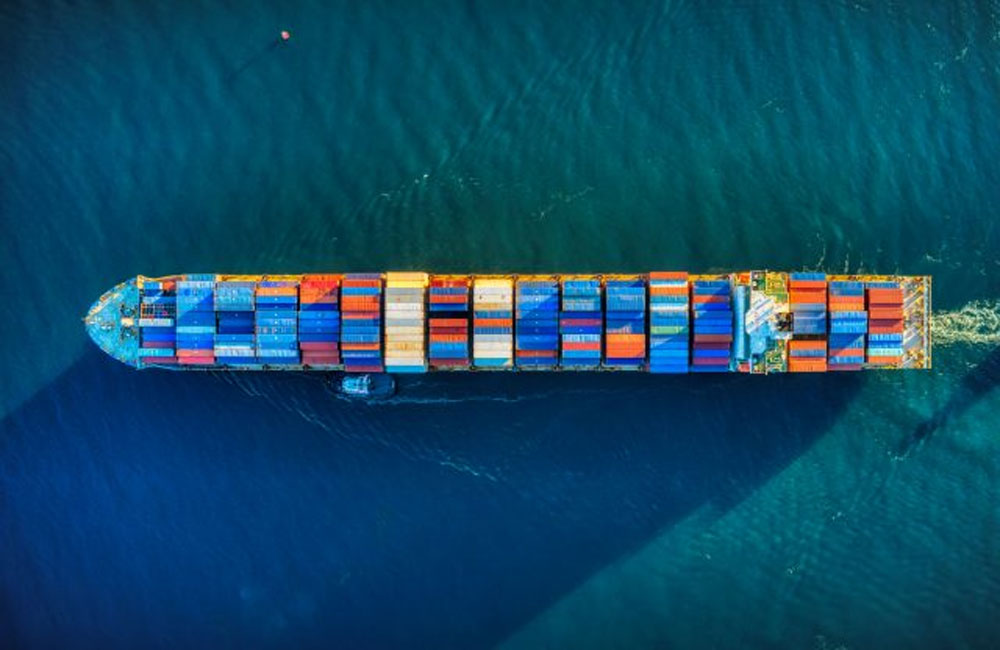
Sri Lanka’s Export Growth Masks Deep Structural Challenges Ahead”
Sri Lanka’s export sector has posted encouraging figures for the first nine months of 2025, but beneath the surface of growth lies a complex web of structural weaknesses and competitiveness challenges that continue to constrain long-term progress.
According to the latest Export Development Board (EDB) report, total export earnings—including both merchandise and services—stood at US$ 12,986.52 million, marking a 7% year-on-year increase from 2024. September alone generated US$ 1,469.75 million, up 12.33% compared to the same month last year. Merchandise exports, valued at US$ 10,240.52 million between January and September, rose by 7.59%, driven primarily by apparel, rubber-based products, and food and beverages.
However, industry experts caution that these headline figures paint only a partial picture. Exporters continue to grapple with currency volatility, high logistics costs, limited access to working capital, and declining competitiveness in global value chains. Despite a moderate recovery in global demand, many Sri Lankan exporters—especially in apparel and rubber sectors—are struggling with rising input costs, frequent power disruptions, and regulatory delays that erode margins.
While India, Germany, Italy, the Netherlands, the UAE, Canada, France, and China recorded notable year-on-year growth, the country’s largest export destination, the United States, showed a 2.84% dip in September 2025, with exports falling to US$ 238.72 million. Although cumulative exports to the U.S. increased by 3.04% over the nine months, the slowdown underscores the sector’s heavy reliance on a few key markets amid weakening consumer demand in Western economies.
India emerged as a stronger partner, with exports surging by 31.7% in September and 23.09% cumulatively, surpassing the United Kingdom. Yet, trade analysts note that much of this growth stems from re-export activities and short-term commodity shipments, rather than sustainable value-added diversification.
Adding to the strain are rising freight charges and port congestion in Colombo, which continue to delay shipments and inflate delivery costs. Exporters have repeatedly urged authorities to modernize port infrastructure and customs clearance procedures, but reforms remain sluggish. The apparel sector, contributing nearly 40% of total merchandise exports, is also facing shrinking global orders due to price competition from Bangladesh and Vietnam.
Economists warn that Sri Lanka’s export base remains narrow and vulnerable to global shocks, with over 60% concentrated in a few traditional categories. Without targeted investment in innovation, digital trade facilitation, renewable energy, and export financing, the country risks stagnating despite short-term gains.
As one senior trade analyst remarked, “The numbers look good on paper, but unless Sri Lanka addresses its deep-rooted inefficiencies, the export success story will remain fragile.”
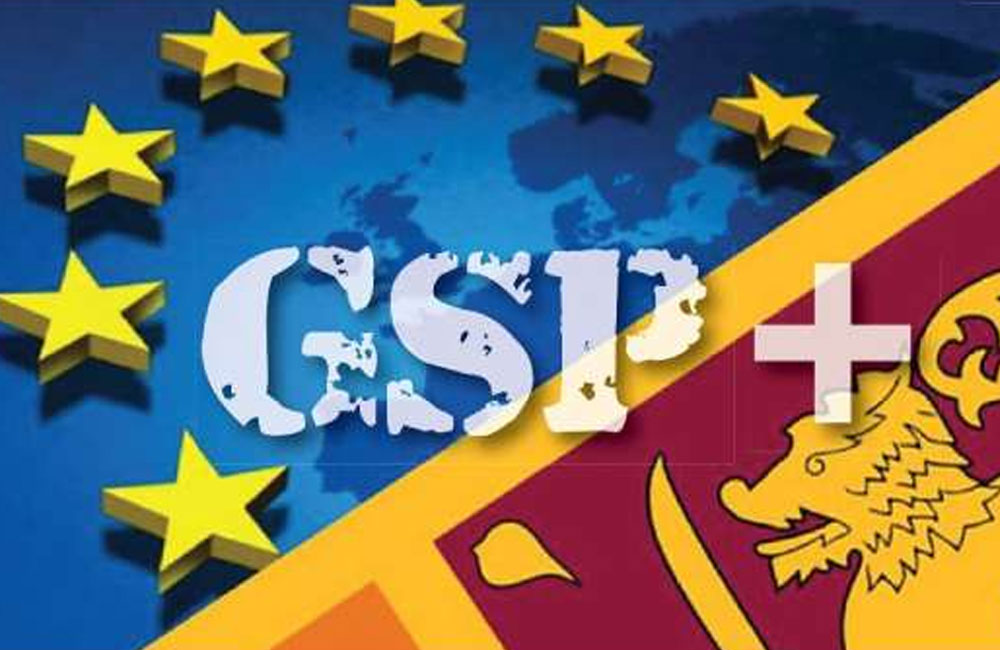
Sri Lanka Risks Losing EU GSP+ Amid Diplomatic Missteps
Sri Lanka’s preferential access to the European Union market under the GSP+ trade facility is facing a serious threat as Brussels prepares for its next review of the scheme. Once considered a diplomatic success that opened doors for exports worth billions, the GSP+ concession is now at risk due to what analysts describe as the government’s weak and uncoordinated foreign policy handling and the poor communication skills of ministers overseeing external relations.
Since 2017, GSP+ has allowed Sri Lanka duty-free access to the EU for over 66% of tariff lines—vital for the garment, rubber, spice, and seafood industries. But the scheme requires strict compliance with 27 international conventions on human rights, labour standards, environmental protection, and governance. The EU’s upcoming regulatory overhaul will expand these to 33, adding new conventions on organized crime, climate change, disability rights, and labour inspection.
While these changes are meant to standardize global compliance, the process has become more rigorous and politically sensitive. EU officials now expect detailed implementation timetables and verifiable reforms. In Colombo, however, senior diplomats and trade analysts warn that the government has failed to engage Brussels effectively. Poorly briefed ministers, ad-hoc responses to EU inquiries, and internal policy confusion have all contributed to the perception that Sri Lanka’s compliance is more rhetorical than real.
The Prevention of Terrorism Act (PTA) remains a sticking point. Despite limited reforms, the EU continues to express concern over due process and arbitrary detention. Officials in Brussels have also flagged the slow pace of reconciliation, minority protection, and governance reforms, areas long tied to the GSP+ monitoring process. “Implementation must go beyond promises on paper,” one EU source said, warning that political backsliding could jeopardize trade privileges.
The stakes are high. The apparel sector, which employs nearly one million people directly and indirectly, depends heavily on GSP+ for tariff-free access to its largest export market. Losing this facility estimated to save exporters over €500 million annually would not only shrink export revenues but also dampen investor confidence and weaken post-crisis economic recovery.
Experts argue that Sri Lanka’s diplomatic machinery has become fragmented. Instead of proactive, strategic engagement with the EU, officials often rely on last-minute lobbying. This lack of professionalism, coupled with the absence of clear communication from the Foreign and Trade ministries, has created an impression of amateurism and policy drift at a time when credibility matters most.
Unless the government undertakes urgent, well-coordinated diplomatic engagement and demonstrates real progress in human rights, environmental protection, and governance reforms, Sri Lanka could find itself once again suspended from the GSP+ facility repeating the costly mistake of 2010.

Government amends law to lure FDI via tax concessions
The Sri Lankan Cabinet of Ministers yesterday approved sweeping amendments to the Strategic Development Projects Act (SDP Act) originally passed during the Mahinda Rajapaksa era, paving the way for targeted tax incentives to attract foreign direct investment (FDI) into large-scale projects. The move is explicitly designed to circumvent the limitations on tax incentives imposed under the International Monetary Fund (IMF) programme, sparking concerns about the hidden agenda behind the reform.
In a statement, Cabinet spokesman Nalinda Jayatissa said that the draft amendments have cleared the Attorney General’s review, will be gazetted and tabled in Parliament shortly. The government stressed the revision is focused on “capital-intensive projects that are critical for the country’s economic recovery” while insisting fiscal discipline under the IMF programme will be upheld.
At the heart of the change lies the government’s bid to revive delayed megaprojects such as the $3.7 billion Hambantota Port & oil-refinery scheme and the Port City Colombo development — both long stalled because tax concessions were not permissible under existing law. Through the amendments, strategic projects will again be eligible for exemptions or holidays on corporate tax, VAT, import tariffs and other levies under the SDP framework. Historically the SDP Act has been criticised for offering 12-year VAT import exemptions and other tax breaks.
But the IMF, under its 48-month Extended Fund Facility (EFF) approved in March 2023, has repeatedly stressed that Sri Lanka must avoid granting broad tax concessions, strengthen tax-exemption frameworks, and boost revenue mobilisation. In a March 2025 press briefing the IMF warned that “unsustainably low taxes and sizeable tax exemptions largely benefiting enterprises rather than people were an accident waiting to happen”.
The same guidance emphasises that tax-exemption regimes must be transparent, justified, and aligned with broader fiscal reform.
Analysts are already interpreting the amendment’s hidden purpose: to create a carve-out allowing flagship foreign-investment projects to operate outside the IMF-mandated discipline. The timing raises alarm, because Sri Lanka’s current IMF review cycle emphasises revenue recovery, trimming exemptions, and strengthening public-financial management. For example, the IMF’s July 2025 staff mission underscored that “the tax exemption framework should be well designed to reduce fiscal costs and corruption risks, while enabling growth.”
Critics argue that the amendment may undermine the broader reform agenda. The World Bank and Human Rights Watch have warned that long tax holidays weaken public finances, distort fiscal equity and push people into poverty. Advocata Institute Chairman and JB Securities CEO Murtaza Jafferjee recently wrote: “There is no defensible justification for granting tax concessions in the Port City. The location is already uniquely advantaged… Layering tax concessions on top is both unjust to other taxpayers and corrosive to the broader economy.”
As Sri Lanka seeks to balance the twin imperatives of reviving investment flows and satisfying IMF reform conditions, the amendment signals a critical test. Will the government’s drive for mega-FDI projects override its commitment to revenue discipline and transparency? Or can this tailored tax incentive regime be designed in a way that aligns with the IMF’s framework for a sustainable recovery? The questions will matter not just for these flagship projects, but for the country’s broader fiscal future.
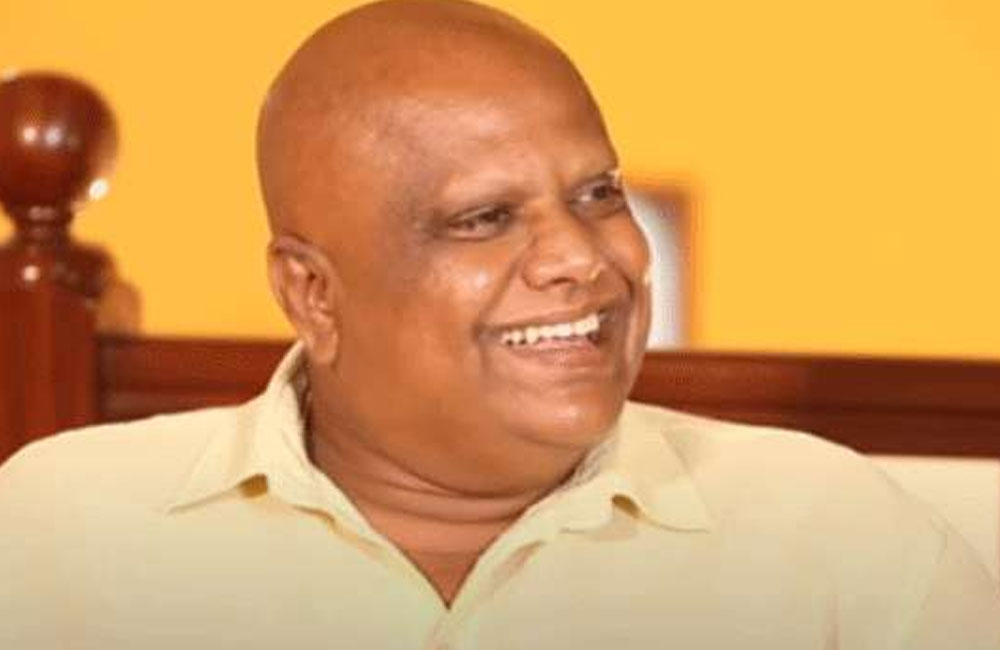
MP Jagath Vithane says his life is in danger
Opposition MP Jagath Vithane told Parliament today that he is facing a death threat and it has been confirmed by the Inspector General of Police (IGP) as well.
Vithane said the IGP has informed the Kalutara SSP to take action on the plot to kill him.
He said the plan is to kill him while he is coming out of his residence.
The MP therefore urged Speaker Jagath Wickramaratne to take steps with regard to the threat.
Deputy Speaker Rizvi Salih who was in the chair assured that the matter will be brought to the attention of the Speaker.
(Source - Dailymirror)
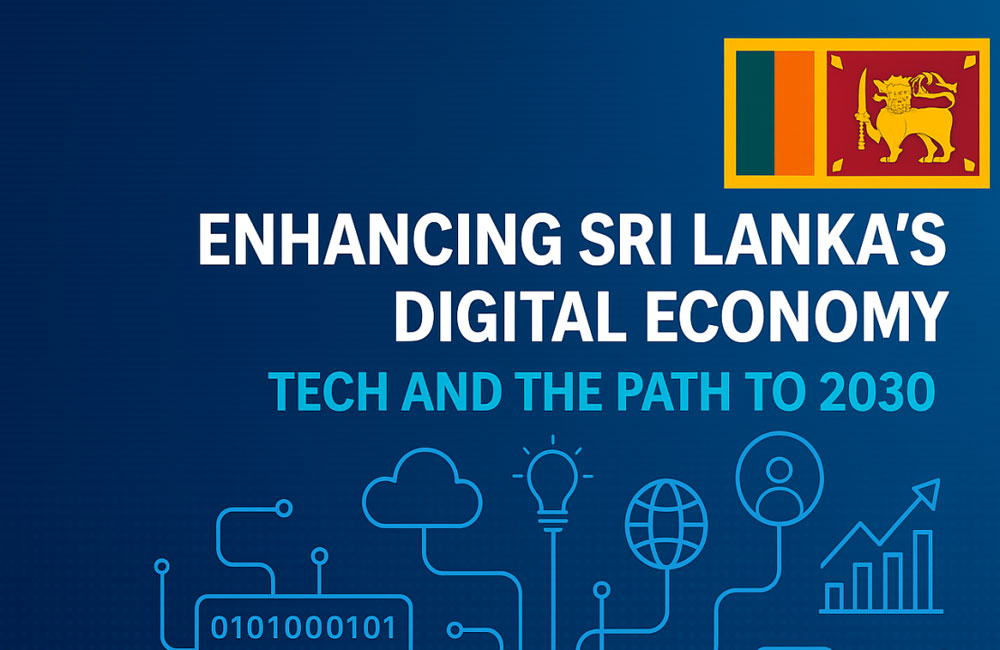
Sri Lanka’s $15 Billion Digital Vision Targets Super ROI Revolution
Sri Lanka is embarking on an ambitious digital transformation drive aimed at generating what officials describe as a “super return on investment (ROI)” through the creation of a US $ 15 billion digital economy. The initiative, unveiled by Dr. Hans Wijesuriya, Chief Advisor to the President on Digital Economy and Chairman of the Information and Communication Technology Agency (ICTA), seeks to position digitalisation as the nation’s primary growth engine within an increasingly tight fiscal space.
Speaking at the launch of the Institute of Policy Studies’ State of the Economy 2025 report, Dr. Wijesuriya said the digital economy would be built around efficiency, competitiveness, and innovation, creating powerful multiplier effects across all sectors. “Digital transformation is the crucial ingredient for economic growth when fiscal room is constrained,” he noted.
At the core of this vision is the development of digital public infrastructure (DPI) a shared set of systems including a national digital ID, data-exchange networks, digital signatures, and federated payment frameworks. The plan marks a shift from fragmented “vertical” ICT solutions toward interconnected “horizontal” platforms designed to serve all public institutions and private users alike.
Sri Lanka, he observed, currently operates with “islands of excellence standalone digital solutions that do not communicate effectively causing friction for citizens and businesses. The new strategy aims to open these systems through application programming interfaces (APIs), enabling entrepreneurs and SMEs to build innovative services on top of government data and platforms, multiplying economic value.
Crucially, Dr. Wijesuriya emphasised that the cost of building this infrastructure will be manageable due to open-source software, cloud technologies, and shared investment models. The government will fund the foundational DPI layer directly, while encouraging private investment in broadband, telecom networks, and cloud infrastructure.
The timeline is intentionally aggressive: the full foundational layer is targeted for completion within two to four years far shorter than the typical decade-long horizon. The broader goal is universal broadband coverage by 2030. Early wins will be sought in tourism, logistics, and trade—sectors that can deliver quick productivity boosts through digital solutions.
However, technology alone, he warned, will not deliver success. The strategy stresses “analog complements”reforms in laws, policies, and processes. Key areas include procurement reforms to end payment delays that “kill” SMEs, re-engineering business models alongside digitisation, and closing the digital divide through purpose-driven, citizen-centric technologies.
Ensuring a “trustworthy digital destination” is central to this transformation. Robust legal frameworks for data privacy, cybersecurity, and intellectual-property protection will be strengthened under the new Data Protection Authority and a forthcoming Cybersecurity Act. Together, these pillars aim to unlock a dynamic, resilient, and inclusive digital economy capable of driving Sri Lanka’s next phase of growth.
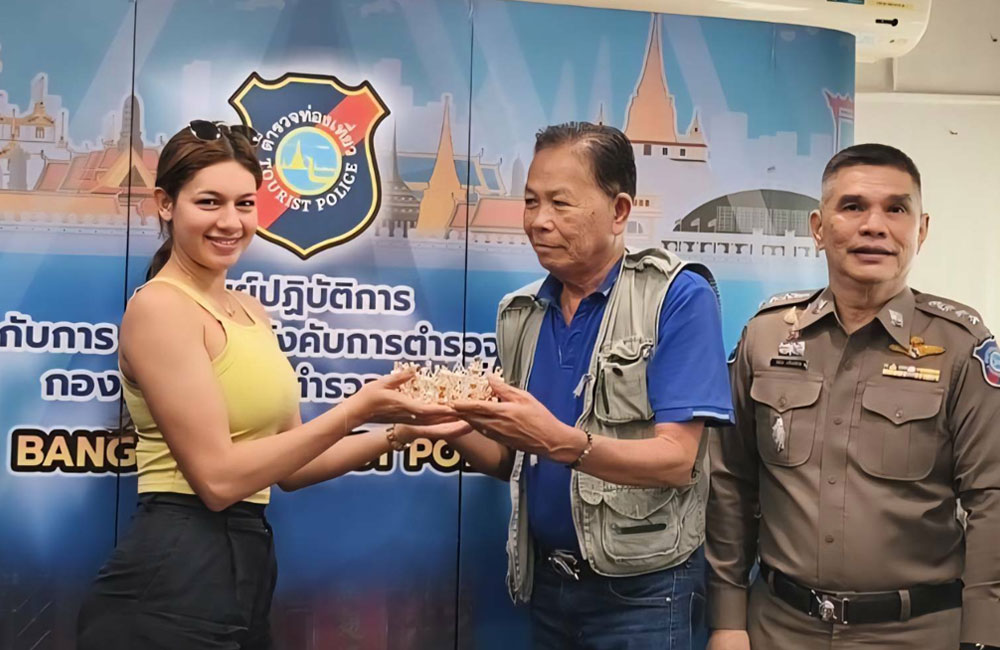
Miss Universe Sri Lanka recovers crown lost in Bangkok taxi
The crown of Lihaasha Lindsay-White — who was crowned Miss Universe Sri Lanka 2025 — has reportedly been recovered after going missing while she was travelling in a taxi in Bangkok, Thailand, on October 19.
She had left the crown and a dark green outfit inside the taxi near the Siam Center Point area in the Pathum Wan district, and later reported the incident to Thailand’s 1155 Tourist Service Hotline.
The Thai Tourist Police assisted her, and using CCTV footage, officials were able to identify the taxi and its driver.
The driver was then contacted, and he returned the missing items to the Bangkok South Tourist Police Station on October 20.
“Thailand is truly a safe country with police officers who genuinely care about tourists,” Lindsay-White said, adding that she hopes to share her positive experience with the world.
The 27-year-old is currently in Thailand to participate in the Miss Universe pageant.

9 Ways to Boost Your Productivity at Work
Let’s face it — in today’s notification-obsessed, meeting-heavy work culture, staying focused feels harder than ever. Whether you’re grinding through tasks or leading a team, the real superpower isn’t working harder — it’s working smarter.
Inspired by the ideas behind “Indistractable,” here are nine practical habits to help you protect your focus and boost productivity — without burning out.
-
Treat Your Calendar Like a Contract (Timeboxing) Don’t just make a to-do list — assign every task an actual place on your calendar. When your day is timeboxed, there's no room for guesswork or accidental procrastination. Your brain knows exactly what to focus on and when.

-
Sync, Don’t Sink — Align Schedules with Your Team Unexpected pings and surprise meetings kill flow. Align your deep-work hours with your teammates beforehand so everyone guards the same focus zones. Less chaos, more productivity.

-
Take Control of External Interruptions Emails, Slack, buzzing phones — death by a thousand distractions. Mute non-critical notifications, set boundaries (“reply windows”), and train your environment to respect your focus.

-
Beat Procrastination with the 10-Minute Trick Tell your lazy brain: “I’ll just do this for 10 minutes.” Nine times out of ten, momentum takes over — and you’ll keep going. Starting is the hardest part. Hack it.

-
Use Precommitment Like a Trap for Future You If willpower is unreliable, outsmart it in advance. Block distracting websites. Commit to a colleague. Schedule publicly. Make quitting harder than finishing.
-
Engineer a Focus-Friendly Workspace Your space either fuels your attention or fragments it. Declutter. Use noise-canceling headphones. Keep it calm, inspiring, and intentional — not visually chaotic.

-
Build a Team Culture Where It’s Safe to Speak Up Teams only thrive when people feel safe to share ideas and block toxic patterns. Psychological safety = higher engagement + real productivity, not just busy-ness.

-
Normalize Predictable Breaks and No-Meeting Zones Productivity isn’t about working nonstop — it’s about recovering smartly. Create sacred “focus hours” and predictable rest windows to avoid burnout on autopilot.

-
Reflect Weekly — and Adjust on Purpose Don’t wait for burnout to diagnose the problem. Do a quick weekly audit — what boosted your productivity? What derailed it? Tweak, evolve, repeat.
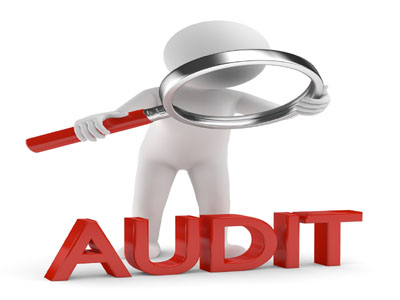
Page 95 of 684